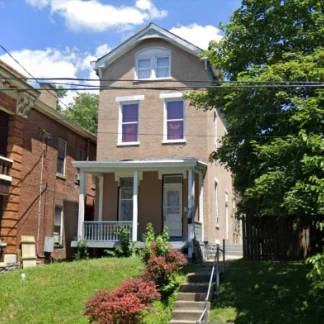Central Clinic Behavioral Health - Young Child Institute
Central Clinic Behavioral Health – Young Child Institute is a drug and alcohol r...
Transitions offers comprehensive substance use disorder treatment. The mission of Transitions is to help individuals transition from the pain of addiction to the gratitude of recovery through comprehensive support services. Transitions additionally offers mental health therapy.
Contact us for more information: (859) 491-4435

Connect with Transitions by calling their admissions team directly.
(859) 491-4435 Website Get DirectionsThe Commission on Accreditation of Rehabilitation Facilities (CARF) is a non-profit organization that specifically accredits rehab organizations. Founded in 1966, CARF's, mission is to help service providers like rehab facilities maintain high standards of care.
CARF Accreditation: Yes
Group therapy is any therapeutic work that happens in a group (not one-on-one). There are a number of different group therapy modalities, including support groups, experiential therapy, psycho-education, and more. Group therapy involves treatment as well as processing interaction between group members.
In individual therapy, a patient meets one-on-one with a trained psychologist or counselor. Therapy is a pivotal part of effective substance abuse treatment, as it often covers root causes of addiction, including challenges faced by the patient in their social, family, and work/school life.
Individual and group counseling is offered in all agency programs. They also help clients with basic life skills, budgeting, employment readiness, and many other topics important to recovery. All clients eligible to work are required to do so. Clients also give back to others by performing community service.
In individual therapy, a patient meets one-on-one with a trained psychologist or counselor. Therapy is a pivotal part of effective substance abuse treatment, as it often covers root causes of addiction, including challenges faced by the patient in their social, family, and work/school life.
Individual and group counseling is offered in all agency programs. They also help clients with basic life skills, budgeting, employment readiness, and many other topics important to recovery. All clients eligible to work are required to do so. Clients also give back to others by performing community service.
Individual and group counseling is offered in all agency programs. They also help clients with basic life skills, budgeting, employment readiness, and many other topics important to recovery. All clients eligible to work are required to do so. Clients also give back to others by performing community service.
Central Clinic Behavioral Health – Young Child Institute is a drug and alcohol r...
Talbert House–Pathways, in Cincinnati, Ohio, is a residential drug and alcohol r...
Commonwealth Substance Abuse Specialists is located in Newport, Kentucky. Common...
Sober Living - Camp Washington Men's House offers a clean and affordable house f...